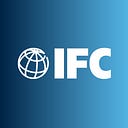‘Take, Make and Dispose’ is Out of Fashion: The Circular Economy is Making its Way on to Production Floors
By Jigar Shah
When you are sailing around the world by yourself, you become acutely aware just how finite the resources available to you on a single vessel really are, including sufficient food and fresh water necessary for any single human being just to stay alive for several weeks at a time.
This is what the British-born, world champion yachtswoman Dame Ellen MacArthur realized while circumnavigating the globe at age 28 in 2005. Appalled by the damage plastic trash is causing sea-life, she wondered how was our wasteful “throwaway” consumer culture developed with such utter disregard for Earth’s ultimately finite resources? And what could be done about it?
Manufacturers around the world are also pondering this question. Is it possible and beneficial to move away from the “take, make and dispose” way of production and consumption to a “circular economy” where products are made to last and resources treated as precious? Many companies that my colleagues and I work together with at IFC would say yes. In emerging markets, industry — even in the absence of stringent government regulations — is actively seeking ways to cut costs and reduce dependence on dwindling resources.
The circular economy is broadly defined as one that is “restorative and regenerative” by design. Ultimately, it aims for bona fide “cradle to cradle” production processes whereby waste is minimized or even eliminated as firms shift towards “closed loop” production cycles. This can, for instance, be achieved by extending the lifetime of products by taking back used items, such as mobile phones, and re-purposing component parts into new products, for example textiles.
Companies are making investments required to become more sustainable. IFC’s Manufacturing, Agribusiness and Services department made $1.86 billion in commitments across 56 projects with climate related components in FY17. Clearly there is both an environmental and an economic case to be made for fostering sustainable business practices that, ideally, also promote a shift towards a circular economy.
While the ideal of a full-blown circular economy promoted by industrial pioneers, researchers, foundations and governments that have issued guidelines heading in this direction may not have been realized just yet, IFC has made investments into sustainable development in emerging markets by sticking to some of the most stringent environmental standards in the world. Many of these investments also happen to foster production practices that promote a circular economy by reducing, eliminating or re-using waste in increasingly creative ways.
In the chemicals sector, for example, IFC has invested in a company called Hexagon in Turkey that takes more than 70 percent of municipal waste that would otherwise end up in landfills and recycles or re-purposes it. The waste is divided into categories, including organic, plastic, metal and paper waste. The organic waste is composted, yielding gas, with any remaining solid waste used as fertilizer. The paper and metal waste streams are recycled back into new products using the same materials. Finally, the plastic waste is turned into Refuse Derived Fuel (RDF), which is a pure burning fuel used in other industrial processes.
RDF is popular, for example, as an alternative fuel used to make cement, a key ingredient in concrete. Emerging markets with fast-paced rates of urbanization have been rapidly increasing their cement use and now account for over 90 percent of cement consumption worldwide, which amounted to 4.1 billion tons in 2016. Yet, cement is energy intensive to produce and heavy and costly to transport.
Prepared as part of its Brazil Low Carbon Technology Roadmap, IFC recently released a new report on international best practice in alternative fuels in cement. IFC has also worked with the cement industry in Egypt, which has vast potential for using Alternative Fuels and Raw Materials (AFR), such as municipal waste and biomass, to fuel local factories supplying cement to a rapidly growing region.
Meanwhile, Waste Heat Recovery (WHR) technology is another process IFC has invested in. WHR technology utilizes residual heat in the exhaust gases generated in the cement manufacturing process and can provide low-temperature heating or generate electricity. In 2013, IFC invested in Cimko, a Turkish cement producer and longtime IFC client, including funds allocated towards a new waste heat recovery system in existing cement production. And in 2016, IFC invested in CEMEX, a global materials company based in Mexico, also to support waste heat recovery.
Similar investments have been made in the glass sector, including a $40 million IFC investment in Turkish glass maker Trakya Cam in 2015 to save energy at its plants in Turkey and Bulgaria, including to revamp furnaces and introduce waste heat recovery. Studies have also shown that there is potential for using post-consumer glass in concrete, a truly circular economy concept that could take off in future.
IFC has also advised textile manufacturers on conducting green business across value chains. The Bangladesh Partnership for Cleaner Textile (PaCT) program, for example, is focused on implementing cleaner production practices such as reducing wastewater generation at 200 factories in Bangladesh, leading to cumulative cost savings of $12.4 million annually for these factories. At present the PaCT program involves, among others, 13 global apparel brands.
Whether we are investing in or advising our clients, we always guide them on how to adhere to extremely strict environmental standards that not only reduce their carbon footprints, but also positively affect their bottom lines. And we are helping to foster the global demand for and shift towards a circular economy in the process.
How to implement circular economy concepts while boosting productivity and growth are some of the topics people from all manufacturing sectors will be discussing at the upcoming IFC Global Manufacturing Conference on October 24 and 25 in Dusseldorf, Germany. You can find out more and register now at www.ifc.org/manufacturing-conference.
Jigar Shah is Principal Industry Specialist at IFC
